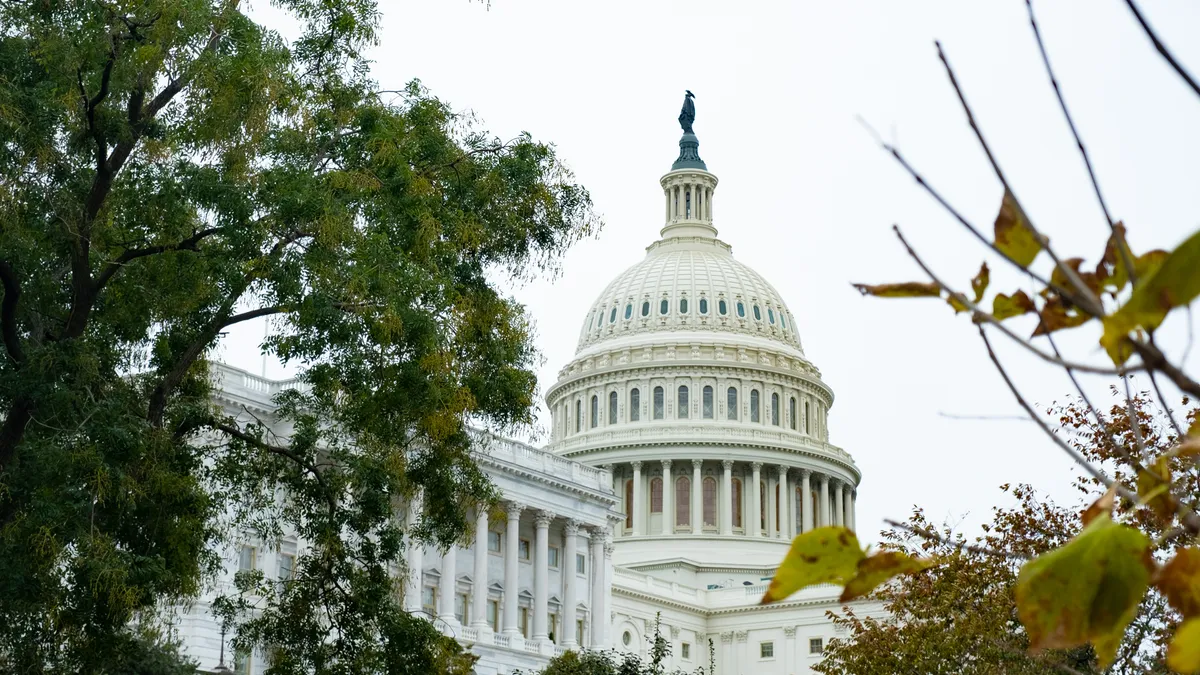The COVID-19 pandemic has put a spotlight on paid leave at the federal level, but U.S. lawmakers are struggling with familiar political obstacles in their attempts to address the issue.
During a U.S. Senate Committee on Finance June 18 hearing, the majority of those present, both Republicans and Democrats, talked about the problems working families face and how those problems are exacerbated by a disease that has closed schools and childcare facilities.
"It seems to me that the coronavirus has hammered home literally and figuratively why paid leave is so urgently needed," Sen. Ron Wyden, D-Ore., said during the hearing. "What we are hearing from at home and from our colleagues … is that families are being forced to make choices that really don’t come close to meeting their family's needs."
It wasn't the first time in recent months that Congress addressed the issue: both houses passed emergency legislation in March, the Families First Coronavirus Response Act (FFCRA), that generally requires that employers with fewer than 500 employees provide two buckets of emergency paid leave to employees impacted by the pandemic. But the law's leave provisions are effective only through the end of 2020. Some lawmakers from both major parties argue that the recent uptick in employer-sponsored paid leave hasn't been enough to address the need for leave generally.
"One of the great developments in American politics over the last five years is the growing recognition across society and both political parties that the issue of paid parental leave is one that needs to be addressed, that it will not simply and solely be addressed by market conditions," Sen. Marco Rubio, R-Fla., said. "The irony of paid leave is, the less you actually need it the more likely you are to have it."
Despite supposed bipartisan consensus on the issue and the number of proposals put forth, each potential solution faces challenges. For example, a proposal co-sponsored by Sen. Bill Cassidy, R-La., would allow parents to take an advance on their federal Child Tax Credit upon the birth or adoption of a child. But critics say it does not provide job protection in the same way that the Family and Medical Leave Act does. Other proposals, like the FAMILY Act, backed by House and Senate Democrats, would provide job protection, but would be funded by a payroll tax.
There are also concerns that paid leave models put forward by state governments may not be effectively helping women and low-income workers, Carrie Lukas, president at the nonprofit Independent Women's Forum (IWF), said at the hearing. These workers experience lost income and opportunities as a result of such laws, Lukas said.
"Everyone agrees that workers need to be able to take time off from work when they are ill or need to care for loved ones," Lukas said. "The question is, how best can we provide that support without destroying true job flexibility and without taking away employment opportunities from women and low income workers."
A Rhode Island case study
In Rhode Island, for example, the state's paid family leave mandate, the Temporary Caregiver Insurance program (TCI), shows disparities in contributions versus use. Lukas cited IWF research on Rhode Island's law, which showed that while 42% of workers who made less than $20,000 annually paid into the program, only 19% of beneficiaries were from this income group.
State officials appear to be aware of such disparities: a 2016 report submitted by the University of Rhode Island on behalf of the state's Department of Labor and Training showed several gaps in awareness of the state's program among those with lower incomes and lower education; non-white populations; older workers and those who work for small employers. The same report identified common barriers to taking leave, including awareness, inability to afford a loss of income, and fear of job loss and other negative work repercussions.
But the 2016 report also recommended tailored outreach strategies for underserved populations and discussed the role that employers played in promoting the program: "Employers are key in increasing TCI's awareness and usage, and should be apprised more proactively about the business and societal benefits of embracing family-friendly policies."
Other research on Rhode Island's law highlighted the role it played — similar to laws in other states — in responding to COVID-19's impact. A report published earlier in June from the Urban Institute, a think tank, found that the law enabled workers to access benefits quickly during the pandemic without forcing employers to seek reimbursement for the cost of providing leave.
Data from the Urban Institute "demonstrate clearly that by having an established paid family and medical leave program, the programs could be retooled quickly so that working families were able to get responsive access to help," Sen. Kirsten Gillibrand, D-N.Y., said.
Fiscal concerns, state leave conflicts also present
Rubio voiced additional concerns about the fiscal impact of leave mandates: "I along with others have spent a number of years now trying to find a way forward that doesn't grow the national debt, doesn't create burdens on private sector hiring," Rubio said, adding that he hopes for a solution that "addresses this challenge without unintended and unanticipated consequences."
There are also concerns about workers who are already covered by state laws or who are already covered by an employer-provided policy or are self-employed, Lukas said. "Rather than having a massive new entitlement program that would impact and change the employment contract of every single American … why don't we focus on those people who actually do need it?," she added.
But a sizable portion of U.S. workers don't have access to such benefits, Erika Moritsugu, vice president at the nonprofit National Partnership for Women and Families, said at the hearing. Bipartisan action on the issue, she added, may ensure that workers "never again have to make the impossible choice between the jobs they need to survive and helping themselves and their loved ones."






















